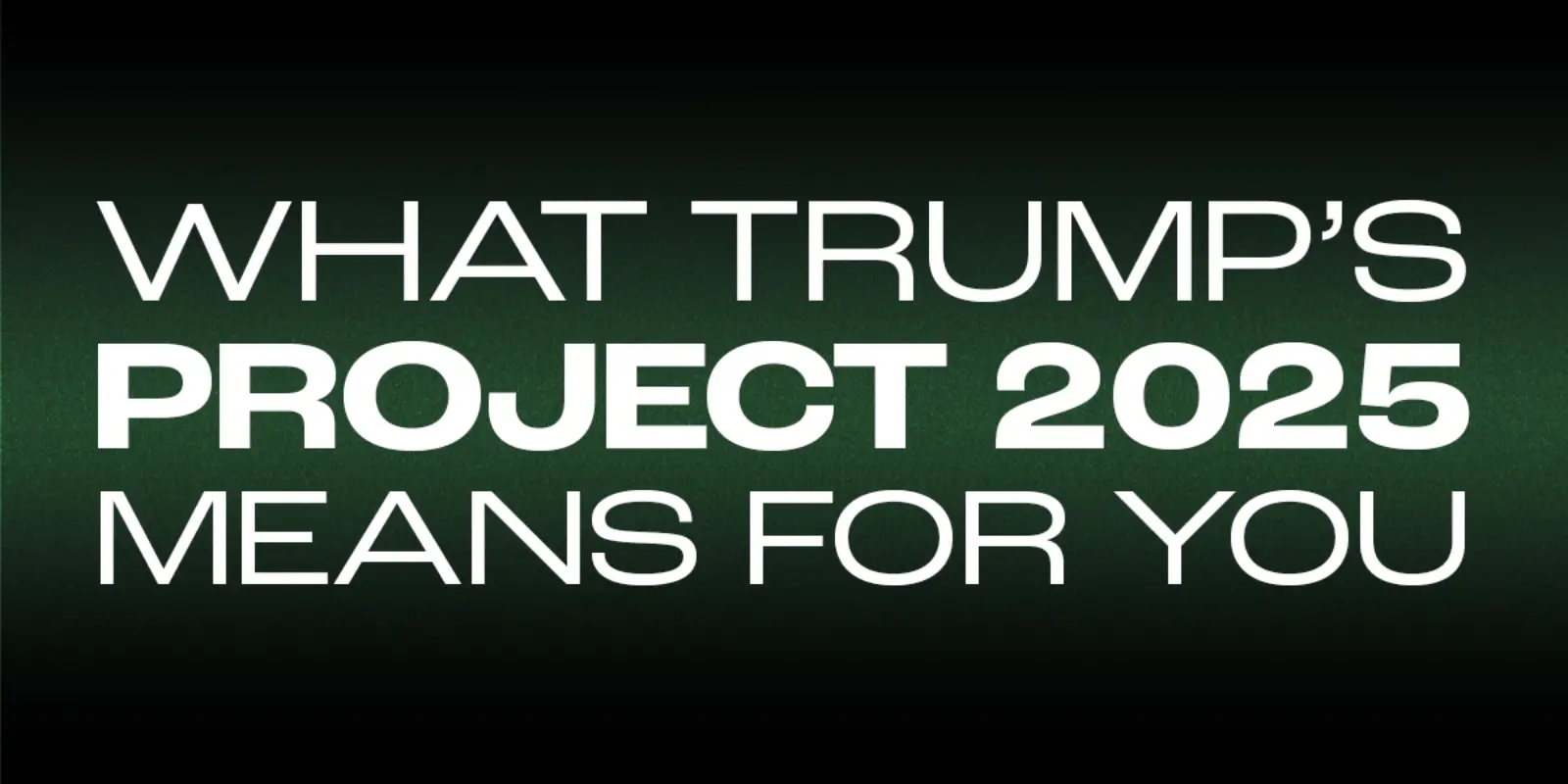Project 2025 and Its Connections to Trump
Introduction
As the 2024 election cycle heats up, a new initiative called Project 2025, with deep ties to the Trump administration, has emerged, sparking significant interest and concern. Backed by a coalition of conservative groups, Project 2025 is seen as a blueprint for reshaping the federal government in ways that align closely with the goals of former President Donald Trump and his administration. Understanding the origins, objectives, and potential impacts of Project 2025 is crucial for anyone interested in the future direction of the United States, particularly as it relates to sensitive issues like abortion, birth control, and marriage equality.
What is Project 2025?
An Ambitious Plan for Government Overhaul
Project 2025 is a comprehensive strategy designed to fundamentally transform the federal government. Spearheaded by The Heritage Foundation, a leading conservative think tank, the project aims to implement sweeping changes across multiple branches of government, with a particular focus on reducing the size of the federal workforce, deregulating key industries, and empowering state governments. The plan also includes restructuring federal agencies to align more closely with conservative principles.
Key Components of Project 2025
- Personnel Changes: One of the primary goals of Project 2025 is to replace large numbers of federal employees with individuals who are more aligned with the administration’s conservative values. This includes appointing loyalists to key positions and ensuring that the federal workforce supports the policy agenda of the administration.
- Deregulation: The project emphasizes rolling back regulations that were put in place by previous administrations, particularly those related to environmental protections, healthcare, and financial oversight. The goal is to reduce what proponents see as government overreach and to promote free-market principles.
- State Empowerment: Project 2025 advocates for shifting more power to state governments, reducing federal intervention in areas like education, healthcare, and social issues. This approach is intended to give states more autonomy to implement policies that reflect local values and priorities.
Connections to Trump and His Former Administration
A Continuation of Trump’s Agenda
Project 2025 is widely seen as an extension of the policies and goals that defined Donald Trump’s presidency. Many of the individuals and organizations involved in Project 2025 were key players in the Trump administration, and the initiative reflects a desire to continue and expand upon Trump’s efforts to reshape the federal government.
Key Figures Involved
- Stephen Miller: A former senior advisor to Trump, Miller is reportedly involved in Project 2025, particularly in areas related to immigration and law enforcement. His influence suggests that the project will continue Trump’s hardline stance on these issues.
- Mark Meadows: Trump’s former chief of staff, Mark Meadows, has been linked to Project 2025 through his involvement with various conservative organizations supporting the initiative. Meadows’ experience in the Trump White House is likely to inform the project’s approach to executive branch management.
- The Heritage Foundation: Under the leadership of Kevin Roberts, The Heritage Foundation has become a central force behind Project 2025. The think tank played a significant role during the Trump administration, particularly in judicial nominations and regulatory reform, and continues to support policies that align with Trump’s vision.
Social Policy Goals: Abortion, Birth Control, and Marriage Equality
Potential Moves to Eliminate Abortion Rights
Project 2025 has sparked concerns about its potential impact on abortion rights in the United States. Given the involvement of key figures who have previously supported anti-abortion measures, there is a strong possibility that the project could include efforts to further restrict or eliminate access to abortion at the federal level. This might involve pushing for federal legislation that bans or severely limits abortion, even in states where it is currently legal, or supporting the appointment of judges who are likely to overturn or undermine existing protections.
Threats to Birth Control Access
Another area of concern is access to birth control. Project 2025 could lead to the rollback of federal programs that provide funding for contraception, particularly for low-income individuals. There is also the potential for new restrictions on the availability of birth control methods, including emergency contraception and long-acting reversible contraceptives (LARCs). Such measures could be framed as protecting “conscience rights” for healthcare providers who oppose contraception on religious grounds, but would, in effect, limit access to essential reproductive healthcare for millions of people.
Challenges to Marriage Equality
Marriage equality is another issue that could be targeted under Project 2025. The initiative’s emphasis on returning power to the states raises concerns that some states could attempt to challenge or roll back marriage equality rights. Additionally, the appointment of conservative judges and the potential for federal legislation could pose significant threats to the legal status of same-sex marriages. While outright reversal of marriage equality at the federal level may face significant legal hurdles, Project 2025 could encourage states to enact laws that undermine the rights of LGBTQ+ individuals.
Implications of Project 2025
Impact on Federal Agencies
If implemented, Project 2025 would likely lead to significant changes within federal agencies, particularly those that deal with healthcare, social services, and civil rights. The plan includes proposals to reduce the number of civil servants, restructure or eliminate certain agencies, and shift power away from career officials to political appointees. This could result in a more partisan and less independent federal bureaucracy, with serious implications for social policy enforcement.
Potential Policy Shifts
The social policy agenda of Project 2025 could have widespread implications for reproductive rights and LGBTQ+ equality. Critics argue that these changes could roll back decades of progress in these areas, while supporters believe they will restore what they view as traditional values. The focus on deregulation and state empowerment also suggests that key decisions on these issues may be increasingly left to individual states, leading to a patchwork of rights and protections across the country.
Effects on Democracy and Governance
Critics of Project 2025 warn that the initiative could further polarize American politics and erode democratic norms, particularly in the areas of reproductive rights and LGBTQ+ equality. The emphasis on appointing loyalists and reducing the influence of career civil servants could lead to a more politicized and less accountable government. Supporters, however, argue that these changes are necessary to restore accountability and ensure that the federal government reflects the will of the people, particularly on issues of social and moral significance.
Public and Political Reactions
Support from Conservative Circles
Project 2025 has garnered strong support from conservative leaders and organizations who see it as a necessary step to rein in what they perceive as an overreaching federal government. They argue that the project’s emphasis on deregulation, state empowerment, and personnel changes is essential for advancing conservative values, particularly in the areas of abortion, birth control, and marriage equality.
Criticism from Opponents
On the other hand, the project has faced significant criticism from progressive groups, civil rights organizations, and legal experts who fear that it could undermine the rights and protections for women, LGBTQ+ individuals, and other marginalized groups. They argue that Project 2025 represents a dangerous consolidation of power that could threaten individual freedoms and democratic institutions.
Conclusion
Project 2025 is a bold and controversial initiative that seeks to fundamentally reshape the federal government in ways that align closely with the vision of Donald Trump and his former administration. As the 2024 election approaches, the project is likely to play a significant role in the political debate, particularly around sensitive issues like abortion, birth control, and marriage equality. Understanding the objectives and implications of Project 2025 is essential for anyone concerned about the future direction of the United States and the potential rollback of hard-won rights.
Call to Action
Stay informed about Project 2025 and its potential impact on American governance and social policies. Engage in the political process by contacting your representatives, participating in discussions, and supporting organizations that align with your values. The future of our democracy and the protection of individual rights depend on an informed and active citizenry.
Have something to say? Say it in the Comments Section!!
What are your thoughts on Project 2025 and its potential impact on reproductive rights and marriage equality? Do you see it as a necessary reform or a dangerous shift in governance? Share your opinions and engage with others in the discussion below!





